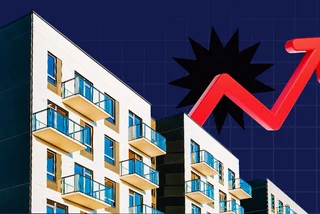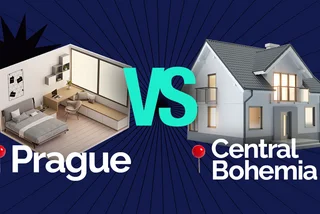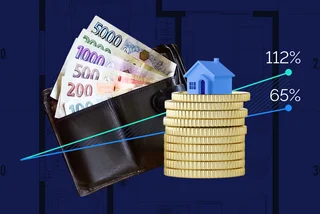Once known for its low cost of living, Prague is facing a growing crisis in housing affordability that is eroding living standards for many residents. Despite earning significantly more than the national average, a substantial portion of Prague households struggle to cover unexpected expenses and daily costs due to soaring rents and housing-related outlays.
Recent analysis from the Czech Statistical Office (ČSÚ) reveals that while Prague’s average net income per household member exceeds the national figure by over 25 percent, nearly 14 percent of households cannot afford an unexpected expense of about CZK 15,600.
Meanwhile, the burden of housing costs—particularly rent—is forcing some residents, especially younger people, to relocate outside the capital, fueling demographic shifts in the surrounding regions.
Prague’s income advantage tempered by high housing costs
The economic allure of Prague remains strong, with average gross monthly wages surpassing CZK 57,000 at the end of last year, far outpacing other regions of the Czech Republic. The city’s abundant job opportunities, healthcare quality, and cultural offerings continue to attract workers nationwide.
According to a ČSÚ report titled Income and Living Conditions of Prague Households, the average net annual income per household member in Prague is roughly CZK 350,000, about 25.6 percent higher than the national average.
However, these income advantages are offset by steep housing expenses. The average monthly rent in Prague now approaches CZK 31,500 crowns, consuming more than a third of total housing costs across the city (taking owner-occupied housing into account), which themselves represent nearly 19 percent of a household’s net income.
This contrasts with other regions, where rent typically accounts for only about 20 percent of housing costs. Additional expenses such as heating and hot water add another 14.6 percent to housing budgets, exceeding the national average of 10.1 percent.
These costs put significant pressure on residents. More than one-third of Prague households reported difficulties making ends meet in 2023, with around 14 percent unable to cover an unexpected expense of CZK 15,600. Approximately 11 percent of households cannot afford a week-long vacation annually, underscoring financial strain despite the relatively high incomes.
A trend in young residents leaving Prague
The financial strain linked to expensive housing is contributing to demographic changes, particularly among younger residents, according to analysis from iDnes.cz.
Analysts from Česká spořitelna point to “signs of deurbanization” as young people increasingly move outside Prague’s city limits in search of more affordable housing while commuting to jobs in the capital.
This migration impacts the surrounding Central Bohemian Region, which has seen its population grow since 2006 at a rate comparable to the combined increase of all other Czech regions excluding Prague.
The phenomenon reflects a broader challenge for Prague’s urban planning and social dynamics, as the city must balance maintaining its economic magnetism with ensuring livable conditions for its residents.
Additional factors weigh on Prague’s overall prosperity ranking. Despite its economic strengths, the city placed low among Czech regions in a recent prosperity index, with higher crime rates and poorer access to education cited as contributing issues.
Prague's housing market is characterized by a predominance of small apartments—one- and two-room units now make up about 65 percent of sales—reflecting the rising numbers of single- and two-person households, which now constitute over 40 percent of Prague’s dwellings. Families are increasingly seeking housing outside of the city.
Developers have responded to demand with a 60 percent increase in apartment sales in the first quarter of 2025 compared to the previous year. Still, housing prices in Prague continue to climb, with new apartments averaging CZK 168,000 per square meter this year.












 Reading time: 3 minutes
Reading time: 3 minutes 



 English
(Proficient)
English
(Proficient)
























